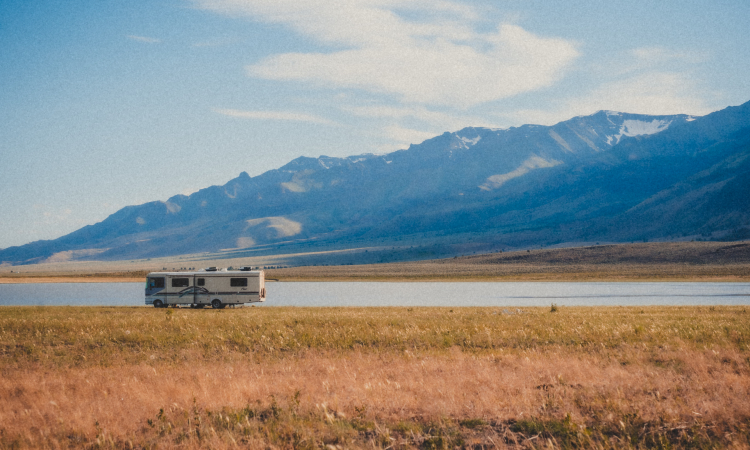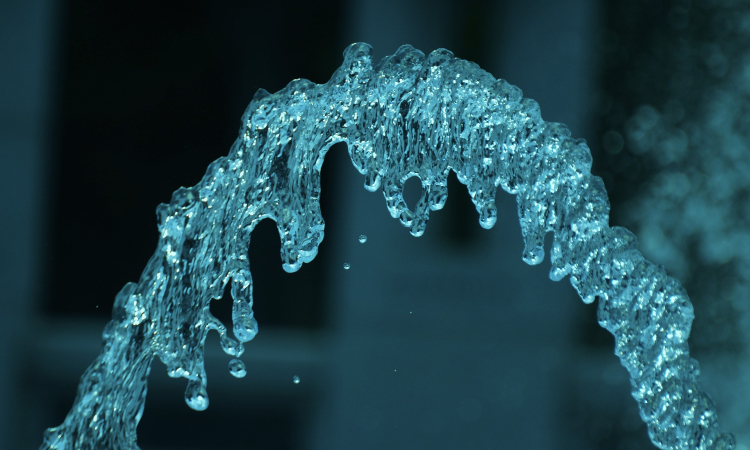A lot of RVers wonder whether or not they can leave their water pump on. Most find it easier to leave their water pump on at all times. Is it safe to do that, though?
It’s common for RV users to leave their water pumps on for the duration of their trip and powering it off after they are done. However, leaving your pump on means increased wear and tear on the pump, shortening its lifespan. This matters more or less depending on if you have an on-demand pump.
If you’re thinking about leaving your RV water pump on, there are a few things you should know. In this article, we’ll discuss all aspects of the issue.
By the way, as an Amazon Associate, I earn when buying qualified products through links on my site.

Should You Leave Your RV Water Pump On?
It depends on how long you want the pump to stay intact. On-demand water pumps don’t operate unless you turn the faucet on. So, they don’t waste any water if you leave them on overnight.
However, leaving your on-demand water pump on may actually leak power even if it’s not in use, depending on your rig’s electrical system.
If you are more concerned with conserving your RV batteries at the cost of convenience, then you should turn off your water pump if you aren’t using it.
Furthermore, if your pump isn’t on-demand, then you should turn it off at night. It’ll waste a lot of water if you leave it on. It’ll also cause a bunch of other problems, but we’ll talk about those later.
One situation where you definitely should leave your water pump off is if you get water from city pumps, you should turn your pump off. In this case, it’ll be redundant because the pressure of the city water will be enough. Besides, it’ll keep pumping when you turn the water on, so it’ll be a waste of money.
Reasons You Shouldn’t Leave Your RV Water Pump On
There are plenty of reasons you why shouldn’t leave your RV water pump on when it’s not in use. Here are the most prominent ones.
No Sleep Disturbance
When your water pump is turned on overnight, its pressure will fluctuate. It’ll go low when the pump relaxes, and it’ll turn back on suddenly. When it comes on, it’ll disturb your sleep, even if it only lasts for a second. This may happen every two hours, so it’d be wise to turn it off if you want to have a good night’s sleep.
Saving Pressure Pump Power
The noisy sound that may wake you up isn’t the only downside of the pressure pump. When it’s left switched on, it consumes unnecessary power for the occasional boost. It doesn’t produce any water, so you don’t need it.
Depending on the power system of your particular rig, you may have electricity going to the pump even if it’s not pumping water, which can leak a small amount of wasted power.
No Overnight Freeze
There’s an essential life hack that most RV users know of. Leaving your water faucet on overnight while the pump is off prevents your sprayer hose from freezing. All winter campers know that freezing is a pretty common issue in the cold months.
Needless to say that if you leave your water pump on, you won’t be able to do this. Over time, this could lead to freezing, which isn’t a pretty problem to solve.
We recommend turning your pump off and leaving the faucet on. You’ll be saving power and protecting the hose from freezing at the same time.
No Flooding Occurs
Most of the time, you don’t realize that your water pump is leaking until it’s too late. If you don’t do regular maintenance or observation, the leak may escape you. In this case, leaving the water pump on at night can have disastrous results.
You don’t want to wake up to a flood in the RV’s interior. It may ruin anything you left on the floor; not to mention that it’d be hard to clean. So, we recommend that you turn your water pump off when you’re not using it.

Should I Turn Off My RV Water Pump At Night?
For the reasons above, the safest thing for your RV is to leave your water pump off at night. It is possible to have a water leak when you aren’t there to mind it or at the very least the water pump is likely to drain your batteries, slightly.
However–you have to remember that if you turn off your pump and you wake up in the middle of the night to use the toilet you’re going to have to turn the pump on again.
This is why many people just leave their pump on continuously while they are traveling so that they don’t have to mess with it. There’s no problem with this–I’m just telling you what the downside is. It’s a little risk but it’s not a dealbreaker.
So, again, you have to weigh the potential costs vs. the convenience.
Does the RV Water Pump Run All the Time?
If your RV water pump is an on-demand water pump, it’s only going to run if a valve is opened (if you are trying to use it, such as if you open your faucet or flush your toilet).
On-demand water pumps are likely to take a small amount of power to be in that ready state, but aren’t actually pumping unless you open a valve.
Most RV pumps are on-demand–I imagine it’d be hard to find an RV pump that wasn’t on-demand and was constantly pumping when powered.
When Do I Turn On My RV Water Pump?
Any time you need to use water, such as if you need to flush your RV toilet, use the shower, use water at the sink, or anything else, you will need to turn on your RV water pump.
Some people choose to turn on their water pump at the beginning of their trip and let it stay on. You can save energy (a small amount) and prevent water leaks by only turning your water pump when you are going to be using your water.
When Do I Turn My RV Water Pump Off?
You can turn off your RV water pump whenever you’re not using it, but it’s not super convenient to do that. Here are some optional ideas of what you can do (and what other people do)
- Turn off your water pump whenever you aren’t using water. This means you may have to turn your RV water pump on several times a day.
- Turn off your water pump after your trip–this means your water pump will be on, ready to go even if you aren’t using your water.
The times where you must turn off your water pump are:
- When you are hooked up to city water. There’s no need to repressurize pressurized water.
- When you are done with your trip. You should always turn off your water pump even when hooked into shore power if you aren’t staying in your RV.
How to Repair a Water Pump Leak – 4 Easy Steps
If you want to keep your water pump on, you’ll need to fix any leak you have. This will assure you don’t wake up to a flood in your RV. Most leaks happen due to a broken valve; this small device is responsible for telling the water pump to stop. If it’s not working properly, the water pump will likely leak.
These four steps will solve your issue:
- Turn the water pump off.
- Remove the current check valve. You’ll find it on the hose that connects the tank and the pump.
- Put a new check valve and make sure its arrow is pointing towards the water tank.
- Connect the valve’s end to the water pump.

When you turn the water pump on again, the leak should stop. If it doesn’t, you should start looking for cracks in the water lines. Any split or crack could cause the water pump to depressurize, which eventually leads to leaking even if the faucet is turned off.
What to Do If Your Water Pump Stops Pumping
If you’re used to leaving your water pump on all the time, problems may eventually start to appear. One of the most common issues is that it stops pumping. You’ll turn it on, it’ll sound as if it’s pumping, and you’ll switch the lever on to find an empty faucet.
To solve this, you should take some steps to find out the problem’s source.
Step 1: Check Your Water Tank
A lot of people forget to check their tanks for freshwater. So, the pump may not be working because there isn’t anything to pump.
That’s why the tank is the first thing you should check. If the water level is too low, it may be the reason.
Step 2: Inspect the Water Lines
If your tank is full, your pump should have no excuse not to be pumping. In this case, you should start checking all the water lines that are coming out of it. Any loose connection or crack could be the reason for the malfunctioning.
The first line you should check is the one leading to the freshwater tank. Afterward, start observing all the other lines that are going up the rig.
Step 3: Check the Water Flow
After you’re done with the first two steps, it’ll be time to check if the pump is receiving any water flow. You can do that by disconnecting the water line that’s coming out of the pump. Then, see if the water is moving towards the pump. If it is, reconnect the waterline. If it’s dry, then your problem is with the line that connects the tank and the pump.
The next thing you should do is re-establish the suction. Check for any blockages and refill the waterline. Next, connect it and turn the water pump on. You should see the water moving towards the faucets. Leave it for two minutes and turn the faucets on. If no water is coming out, proceed to the next step.
Step 4: Check the Pump
If you reach this step and the water still refuses to come out, there’s a high chance your pump needs a replacement part. You could also need a whole new pump. You can determine that by disconnecting the water lines and turning the pump on.
If the water comes out in thin trickles, your pump definitely needs a replacement. On the other hand, if it comes out on high pressure, the issue will be between the faucets and the pump.
Conclusion
Now that you know the side effects of leaving your RV water pump on, you know what to expect if you do it. If your pump is on-demand, you’re one of the lucky ones!
As long as you maintain your pump regularly, it shouldn’t give you a hard time. However, turning it off when you don’t need it will save you a lot of hassle.
Hopefully, we answered your question as to whether or not you can leave your RV water pump on!
